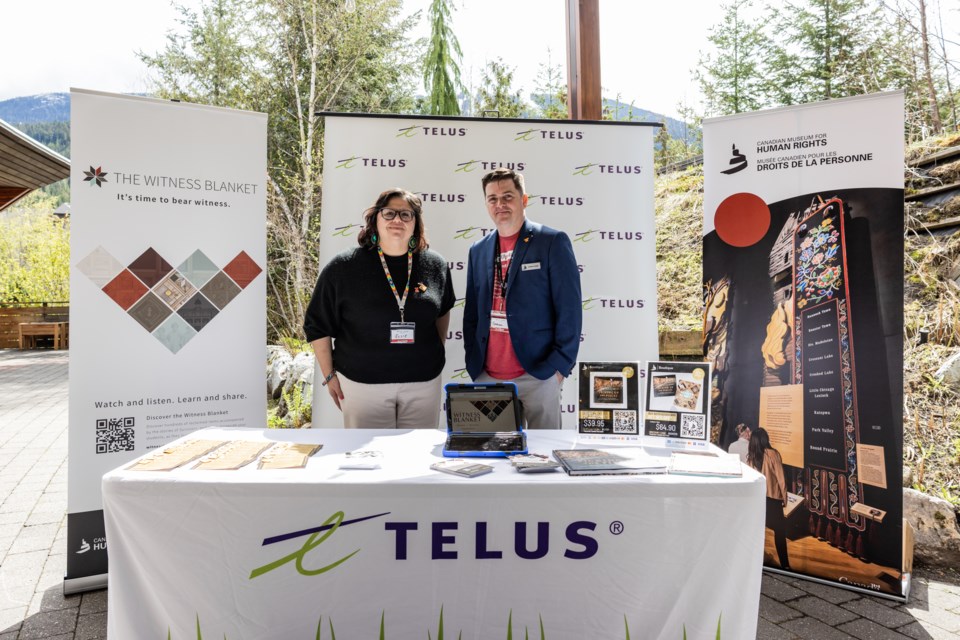The National Day for Truth and Reconciliation (NDTR), observed on September 30, is a critical moment in Canada’s journey toward reconciliation. It is a day dedicated to acknowledging the profound and enduring impact of residential schools on Indigenous communities, while emphasizing the collective responsibility to heal these deep wounds. For businesses across the country, the day offers an opportunity to engage not just in reflection, but in tangible, meaningful action that advances the broader cause of reconciliation.
The origins of NDTR are deeply intertwined with the Truth and Reconciliation Commission’s (TRC) Calls to Action, particularly Call to Action No. 80. This call urged the federal government to establish a statutory holiday to honour residential school survivors and their families. In 2021, this call was answered, marking a significant milestone in Canada’s recognition of its past and its commitment to a more inclusive future.
The date was chosen in alignment with Orange Shirt Day, inspired by Phyllis Webstad’s powerful story. At just six years old, Webstad had her new orange shirt taken from her on her first day at a residential school—a small yet poignant symbol of the broader cultural erasure endured by Indigenous children. The Orange Shirt Society, born from her experience, encapsulates the spirit of NDTR: A call for all Canadians to remember that "Every Child Matters."
Understanding the significance of NDTR requires a broader comprehension of Canada’s historical and ongoing relationship with Indigenous Peoples. It is a day for national reflection and an opportunity for Canadians to engage with the often-painful truths of our past. But beyond reflection, NDTR is a call to action—a moment for businesses to actively participate in the journey of reconciliation, recognizing that this work is not solely the domain of governments or Indigenous communities, but a collective responsibility that requires engagement at every level of society.
The role of businesses in this journey is central. The TRC’s Call to Action No. 92 explicitly urges the corporate sector to adopt the United Nations Declaration on the Rights of Indigenous Peoples (UNDRIP) and to actively engage in reconciliation efforts. For many companies, this can seem daunting, but the rewards—both moral and economic—are profound.
So how can businesses rise to the occasion on NDTR and beyond? The first step is education. Many Canadians remain unaware of the full history and impact of residential schools, and businesses have a powerful platform to change that. Hosting workshops, inviting Indigenous speakers or sharing educational resources with your team can foster a deeper understanding among employees while signaling a commitment to meaningful change.
Partnerships with Indigenous communities are another powerful way to engage. This is not about token gestures or one-off donations—it’s about building long-term, mutually beneficial relationships. Support local Indigenous businesses, collaborate on community projects or engage with Indigenous leaders to understand the unique challenges and opportunities within their communities. These partnerships can lead to richer, more-inclusive business practices that benefit all parties involved.
Reflective practices are also crucial. Observing moments of silence, participating in Orange Shirt Day or supporting reconciliation-focused charities are simple yet impactful ways to honour the day. However, these actions must be part of a larger, sustained effort. Reconciliation cannot be confined to a single day; it must be woven into the fabric of your business practices year-round.
One company that is embracing this holistic approach to reconciliation is Telus. Their strategy is built on four pillars: Connectivity, enabling social outcomes, cultural responsiveness and relationships, and economic reconciliation. In addition to internal initiatives like providing virtual training on Indigenous history to over 18,000 team members, the company also focuses on projects that support reconciliation at a community level. For example, the supporting digitization of Carey Newman’s Witness Blanket—a powerful art installation that honours survivors of residential schools—helps to elevate Indigenous voices and stories.
"When you think about the power we have as a corporation to really amplify survivors’ voices externally, with our customers, it’s huge,” explains Marissa Nobauer, director of reconciliation, community engagement and external relations.
But this example is just one way businesses can engage. Whether you are a large corporation or a small business, there is a role for you in this journey. The key is to approach this work with humility, openness and a genuine desire to contribute to a more just and inclusive Canada.
For individual professionals, carrying the work of reconciliation forward in your daily work lives is equally important. Start by educating yourself—seek out resources, attend events and listen to Indigenous voices. In your workplace, advocate for Indigenous inclusion in decision-making processes, support Indigenous colleagues and encourage your organization to establish meaningful relationships with Indigenous communities. Reflect on your own practices: How can you contribute to reconciliation in your professional sphere, whether through procurement, hiring or community engagement?
The National Day for Truth and Reconciliation needs to be more than a day of reflection; it needs to be a day of action. It is an opportunity for businesses to stand up and be engaged in the ongoing work of reconciliation. This work requires all business leaders, employees and individuals to consider how observance of NDTR is not just meaningful, but impactful. Progress, made together, can help move society toward a future where reconciliation is not just an aspiration, but a reality for all Canadians.
Janis Brooks is of Sto:lo ancestry on her maternal side, and of mixed European ancestry on her paternal side. She is the principal owner of Salishan Solutions.




